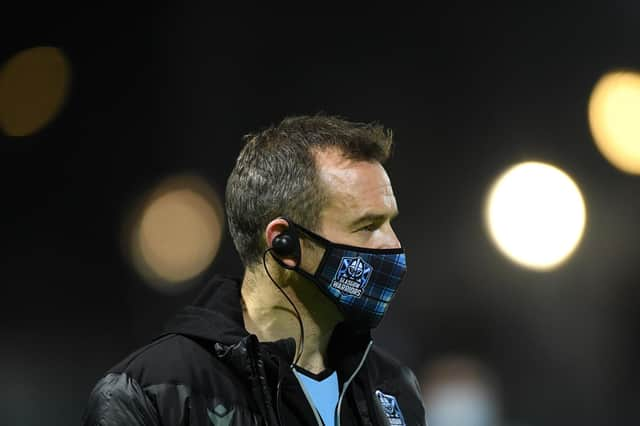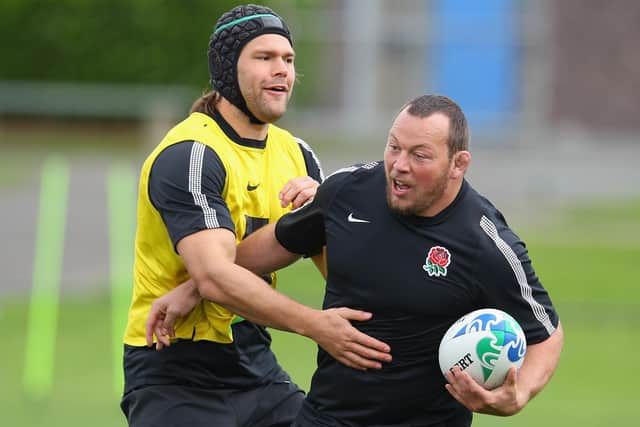Concussion in rugby: It’s ‘night and day’ compared to how it used to be, says Glasgow coach Danny Wilson


Wilson was speaking as it emerged that a group of former players are considering a joint legal action against the game’s governing bodies over the effects of concussions they suffered during their careers.
Steve Thompson, a World Cup winner with England, and seven others claim rugby has left them with permanent brain damage and are in the process of starting a claim for negligence.
Advertisement
Hide AdAdvertisement
Hide AdIt is being viewed as a seismic moment for the sport. The planned action is against World Rugby, the Rugby Football Union and the Welsh Rugby Union, for “failure to protect (the claimants) from the risks caused by concussions”.


Thompson, 42, has been diagnosed with early onset dementia and cannot remember anything of the World Cup triumph in 2003. He said he even forgets his wife’s name at times.
At 44, Wilson is a contemporary of Thompson’s and can identify with the way concussions were dealt with in the past.
“We all played in an era when you got a bang on the head you probably got on with it and probably trained the next week,” said the Glasgow coach, who played for Cardiff Blues. “Now it is far stricter for the better.
“From early coaching and playing, concussion as we know it, was taken seriously but there was probably a pretty blanket approach to it. What we see nowadays is a far more detailed approach which can be a lot better and therefore much safer for player welfare.
“You do see games now when players go off for concussion they rarely come back on because it is very strict in terms of the video footage and the criteria to come back on. There is a very strict testing process that they have when they come off.
“Some feel fine after the game but can’t pass the test. Those things were not in place in the past. From my experiences of playing, I think it is night and day from what it was then to what it is now.
“Tackle height has been one way of trying to reduce concussions. We have seen tackle height come down a fair amount.”
Advertisement
Hide AdAdvertisement
Hide AdThe eight-man ‘test group’ pursuing legal action includes another former England player, Michael Lipman, and ex-Wales international Alix Popham, according to Rylands Law.
Richard Boardman from the law firm says he is representing more than 100 players whose ages range from their 20s to their 50s, many of whom are showing symptoms of neurological problems.
“The vast majority of the former players we represent love the game and don’t want to see it harmed in any way,” Boardman said.
“They just want to make it safer so current and future generations don’t end up like them. This is why we’re asking World Rugby to make a number of immediate, relatively low-cost changes.
“The obvious first step is for World Rugby, RFU and WRU to stop being in denial and acknowledge that there is a problem.”
A message from the Editor:
Thank you for reading this article. We're more reliant on your support than ever as the shift in consumer habits brought about by coronavirus impacts our advertisers.
If you haven't already, please consider supporting our trusted, fact-checked journalism by taking out a digital subscription.
Comments
Want to join the conversation? Please or to comment on this article.
